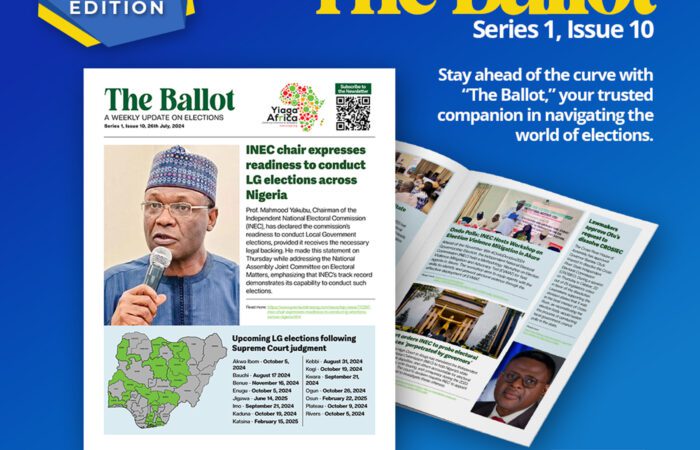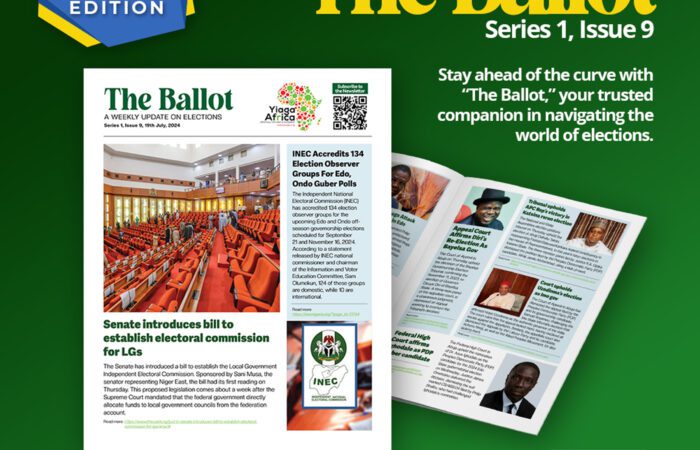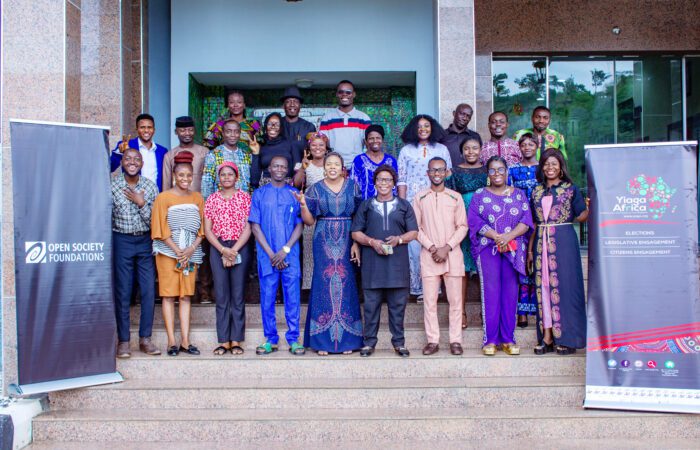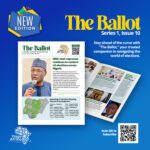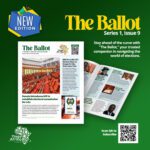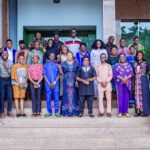In less than 150 days, Nigeria, the most populous black nation on earth, with a population of over 200 million will conduct the biggest and most expensive elections in the entire African continent with over 90 million registered voters. This will be Nigeria’s seventh consecutive general election since its return to the democratic system of government in 1999, heralding 23 years of uninterrupted democracy. This election which will cost the nation at least N305 Billion Naira according to the Independent National Electoral Commission (INEC), will be conducted amidst critical dynamics like rising inflation, high unemployment rate, insecurity, and growing distrust between the political elites and the masses. Amidst a steady rising inflation rate of 19.64% as of August 2022, the cost of conducting the 2023 general election is a 61.37% increase over what was spent to conduct the 2019 general election with the commission spending only N189.2 billion to conduct the last general election.
Nevertheless, campaigns have begun in a saturated political environment. The public is about to be inundated with a succession of never-ending promises from candidates vying for important political positions, including the Presidency, Parliament, Governorships, and State Assemblies across the nation. It is also imperative to note that, the election will be the first general election conducted since the 2020 protest against Police brutality famously tagged EndSARS; an organic, leaderless movement by Nigerian youths who called for an end to the Special Anti-Robbery Squad (SARS) of the Nigerian Police force notorious for assaulting, brutalizing and in some cases, killing unsuspecting young people across Nigeria. The protest which happened 16 months ago in the heat of the pandemic, garnered worldwide sympathy, and set the tone for higher expectations of the country’s youths, as everyone expected that sequel to the massive EndSARS movement, they would once again move in their numbers and elect a candidate whose manifesto caters to the welfare of the youths.
With over 70% of the 12 million newly registered voters being under 35 years old, the influence of this movement was likely felt at the just completed Continuous Voters Registration. Over 42 million young people are already registered to vote in addition to this. All politicians running in the general elections of 2023 essentially depend on the support of young people to win because they represent the largest demographic with over 54 million registered voters. This depends, however, on young people selecting a favored candidate and participating in the voting process in large numbers on election day, as prior election turnout has not been at all encouraging.
The 2023 General elections will also be a unique one as they will be the first general elections to be conducted under the new electoral act. After sustained advocacy by Civil Society Organisations, President Muhammadu Buhari assented to the Electoral Act 2022 in February 2022. Having been tested with marked success in the off-circle elections in Ekiti and Osun states, substantial provisions of the new electoral framework will regulate the conduct of the 2023 showpiece. Specifically, the substantial deployment of technology and electronic transmission of election results across the nooks and crannies of the nation remains a key provision in the law that stakeholders are eager to observe. As a matter of fact, the election management body has revealed that it will procure at least 200,000 Bimodal Voter Accreditation System (BVAS) – the technological device expected to be deployed to conduct the elections. In this vein, the 2023 elections will not just serve as a litmus test for the new electoral act but also reassess the interest of Nigerians in the electoral process.
There is no doubt that Nigerians’, especially young people’s, interest in the electoral process has declined recently for a variety of reasons, including electoral violence, irregularities, manipulations, the recycling of candidates running for elections, and mistrust of the government as a result of subpar leadership. The rising enthusiasm among young people, as evidenced during the voter registration exercise and their heightened involvement in political activities, nevertheless, suggests that this trajectory may be about to alter. With eighteen (18) candidates, which interestingly includes one female candidate, running for the most powerful job in the country, the Presidential election is expected to be competitive like never before. Similarly, there are about 4,223 candidates vying for 469 legislative seats, with only 380 of them being women.
However, there appears to be a push for a paradigm shift from the usual parties and faces that have dominated Nigeria’s political landscape in the preceding two decades, beyond the two major political parties that have traded power in the last 23 years. Thus, only four or five political parties currently dominate the Nigerian political landscape, both online and offline, and each of them has a sizable following that stretches the entire length and breadth of the nation. After strenuous political party primaries largely characterized by financial inducements, defections, and litigations, candidates running for various positions emerged as flag bearers but the ones on the faces of Nigerians almost on a daily basis are the Presidential Candidates of the All Progressive Congress (APC), Bola Ahmed Tinubu; Labour Party (LP), Peter Obi; the Peoples Democratic Party (PDP), Alhaji Atiku Abubakar; and New Nigerian Peoples Party (NNPP), Rabiu Musa Kwankwaso.
But as election day approaches, it appears to be a race amongst the top three contenders. A closer examination of the candidates reveals that the election will be hotly contested as groups of fans continue to shout out their backing for the ones they favour. For instance, Bola Ahmed Tinubu, sometimes known as BAT, is a former senator and twice-elected governor of the state of Lagos. He is said to have attracted a sizable following throughout many states, with mentees holding a range of influential positions. Despite the scandal surrounding his affluence and wealth, he continues to have significant political sway and appears to have impacted several policies, particularly in Lagos state, where he is said to have established a political dynasty. After an alleged failed attempt to serve as the current President Muhammadu Buhari’s running mate in 2015, Tinubu is running for Nigeria’s highest office for the first time. The self-described Jagaban of the South-West believes it is his time to be President after being crucial to Buhari’s rise in 2015 and the 2019 elections. While there are still concerns about his past, his alleged links to drug peddling, appointing a fellow-Muslim Vice President in a religiously-sensitive country like Nigeria, his health, and his advanced age that may work against him, especially in light of the burgeoning movement of young people eager to change the political history of the constant recycling of old guards, Tinubu nonetheless remains a formidable contestant for the country’s top job.
A movement dubbed OBIdients is spearheading the effort to oust old-guard politicians, and it is quickly taking over the nation. The LP candidate Peter Obi, a former governor of Anambra State, is the focus of this movement, which is composed of ardent and charitable followers. Obi, who is 62 years old, is viewed as a change from the establishment and from the divisive political parties that have been in existence for a very long time. His campaigns have dominated social media sites and apparently won online surveys, which has energized his supporters and his overall campaigns. He is regarded as a very astute businessman who frequently urges the nation to put more emphasis on manufacturing than consumption. In spite of running on a less well-liked political platform, Peter Obi currently relies on the support of over 50 million youngsters nationwide, making him the favorite among young people in Nigeria. This is really one of the arguments used by his followers, who continue to call for issues-based campaigns and a reduction in the number of normal well-known political figures. They maintain that political structure is made up of people, particularly young people, and not by how well-liked a political party is. For this, the OBIdients movement has held “One Million Marches’ ‘ in support of Peter Obi, across different states in the country. Looking like a one-man army who is up against two political gladiators and parties that have built nationwide ‘structures’, his supporters definitely need to go beyond the social media hype and street marches to get the real votes that could make him become President against all obvious odds.
One of the odds against Peter Obi and indeed Tinubu is Former Vice President Atiku Abubakar who is the most experienced when it comes to contesting for the highest office in the land having contested and lost five times in the past; three times at the primaries level (1993, 2011 and 2015) and twice as a candidate (2007, 2019). He also has come closest to the seat of power being a Vice President for eight years from 1999 to 2007 under then President Olusegun Obasanjo. At the age of 76, Atiku is said to put “everything” legal on the line to become Nigeria’s President as this may hopefully be his very last shot at the Presidency.
While the candidates are set to battle tooth and nail, the power of the votes remains in the hands of the over 95 million registered voters even as the production and collection of Permanent Voters Cards are still ongoing. Thus one odd against the process is Nigeria’s history of low voter turnout, with only about 30 million (35%) out of the over 84 million registered voters turning out to vote in the Presidential elections in 2019. Similarly, just over 26 million voters making up 32% of registered voters voted for the President in the year 2015. The situation is even poorer in other off-cycle elections, with turnout being as low as 10% in the Anambra 2021 Governorship elections.
However, the attitude is one of optimism given the characteristics of the titans on the ballot and the rising economic and political involvement of young people. Young people’s confidence in the system continues to develop as a result of the intensity of voter education and the noticeable improvement in the election process, which is nearly guaranteeing the sanctity of the ballot. As things stand, they are excited to vote in a few months. The majority of those who are registered to vote still have a significant opportunity to choose their next group of leaders in a variety of positions of authority.
Chinemerem Onuorah is a Communication and Program Officer at Yiaga Africa. She tweets @mererah

